Latest News
Vision, Leadership, and Innovation: Our Path Forward in the 21st Century
Posted by on July 27, 2012 at 5:31 PM EDT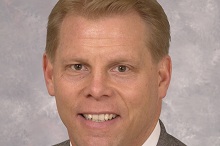
Lowell Porter is being honored as a Champion of Change for his time and effort developing innovative ways to help grow and expand the transportation industry.
My entire professional life has been dedicated to public service, and I am honored to be recognized as a Champion of Change by the White House. It’s moments like this where leaders dedicated to positive change reflect on their journey as a contributor to something larger than themselves. Moreover, they also envision how to continue this journey and making a difference in the lives of others in the future.
Learn more about Energy and Environment, Additional IssuesBeing a Sports Diplomat
Posted by on July 27, 2012 at 10:54 AM EDT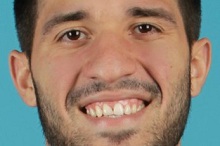
I am greatly honored and humbled upon being selected as a Connecting the Americas Champion of Change. Growing up in my native Caracas, Venezuela, my family always surrounded me with love and support and helped to instill in me the self-confidence and values necessary to achieve my goals in life. They were very supportive when I decided to attend high school in the United States and I was fortunate to be mentored here by my high school Coach, Stu.
All of these experiences enforced in me the desire to strive for excellence in my studies and integrity in my personal relationships. These values have also been important tools in achieving success in my professional career. I have learned the importance of working together with people from different backgrounds and different skills to make a positive impact in my life and the lives of those around me.
Learn more about ServiceGoals for a Better Life
Posted by on July 27, 2012 at 10:49 AM EDT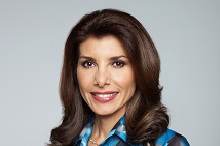
What a great opportunity to showcase the work of so many inspiring individuals that haven't forgotten the communities where they come from and are changing the lives of so many people towards a brighter future.
I'm thrilled to be part of the Champions of Change program. This is a marvelous occasion to share our successes and learn from the experiences and challenges of other Champions in a very effective way: cooperation.
I want to convey my gratitude and appreciation for the chance to share with you a few important lessons learned through a decade of intense and rewarding work to improve the lives of thousands of kids in my beloved country.
We know that by investing in public recreational facilities and free after school programs governments are creating a more equal society.
One of the main differences between the rich and the poor in Latin America is the way they spend their free time.
Learn more about ServiceNever Stop Giving Back
Posted by on July 27, 2012 at 10:40 AM EDT
Over the course of my life I have seen many catastrophic events happen to good people: natural disasters, war, and poverty. I have witnessed a colossal amount of disappointment from the people of my village because they had nothing. Thirty years ago I left my village of Intipuca, El Salvador, during a time of war. I was one of the lucky few who were able to survive and leave to achieve my American dream.
Unfortunately there was a sacrifice which needed to be made. It meant that I must leave my family and everything that I had ever known and loved behind. I was on my own, going to a new country, determined to revisit El Salvador with the opportunity to make a difference in people’s lives.
Upon arriving to America I became an entrepreneur and owned two restaurants. These two restaurants are what put me back on my feet after many years of hard work. They allowed me to have my ideas for helping people in the United States and abroad interact and become a reality.
Learn more about ServiceInventing a Sustainable Future for Latin America
Posted by on July 27, 2012 at 10:39 AM EDT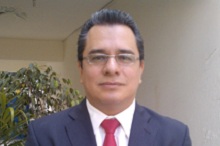
The future has always been far away. Ever since I was a child, I remember thinking about the future as a very distant event. I remember thinking that the future would be different and, in one word, better than whatever the present was for me back then.
Today, I realize I live in the future, just not the future I wanted for my family, my children and the people I care about. I realize the future I live in is a future I contributed to create mostly by not doing much about it.
Granted, the world we live in has been marred by a series of unfortunate events, some caused by us, some not. In the last ten years alone we’ve had perhaps the worst financial crisis the world has seen in 80 years, as well as a series of crises relating to the lack of or uneven distribution of natural resources, including water, food and oil. And most recently, climate change. The problem is not necessarily the amount of damage caused by these crises, but rather the long term, and even irreversible, effects they could have.
The financial crisis of 2008 served as a wakeup call for the entire planet. The effects of the crisis were felt all over the world, especially in developing countries. It was a moment in which we had to decide whether to pursue the same goals that had brought us to this point, or to change the ways we think about the economy, the environment, technology and society. That is, we were at a cross roads where we needed to decide what kind of future we wanted for ourselves, our children and the entire world.
Learn more about Energy and EnvironmentShared Responsibility, Shared Destiny: The MALI Experiment
Posted by on July 27, 2012 at 10:32 AM EDT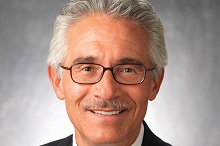
A couple of years ago, a small group of Mexican Americans began talking about whether our community’s leadership could help bring American and Mexican societies closer together, to jointly address some of the challenges that affect us both – and most of all to help strengthen civil society in Mexico.
We needed to answer some basic questions. Would well-integrated, primarily U.S.-born Mexican American leaders use their growing influence to help mobilize resources and forge the links needed to effectively help community-based projects and organizations in Mexico? Are there committed leaders and organizations across the border to partner with? Could a mechanism be fashioned to bring the two together?
I had my doubts, until a trip to the border city of Ciudad Juárez showed me what could be done and was already going on. Having grown up just across the river in El Paso, I was familiar with Juárez but had been away for decades. I saw for myself how committed citizens and robust community organizations are working tirelessly and courageously to save Juárez and its at-risk youth.
Learn more about Immigration, Additional IssuesCultivating the Caribbean American Community
Posted by on July 27, 2012 at 10:20 AM EDT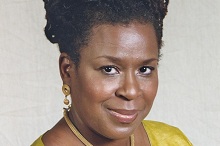 It has been seven years since the official recognition by the US Congress and the White House of June as National Caribbean American Heritage Month (NCAHM), chalking up another milestone in Caribbean American History. Caribbean people have been coming here for a long time. Caribbean immigrants have been a part of America’s intelligentsia and intellectual tradition -- John Russworm, a Jamaican, started the first black newspaper, and the Harlem Renaissance can count among its leaders many of Caribbean ancestry, such as J.A. Rogers, Claude McKay, and Marcus Garvey. The history and the destinies of the Caribbean and the USA are inextricably linked.
It has been seven years since the official recognition by the US Congress and the White House of June as National Caribbean American Heritage Month (NCAHM), chalking up another milestone in Caribbean American History. Caribbean people have been coming here for a long time. Caribbean immigrants have been a part of America’s intelligentsia and intellectual tradition -- John Russworm, a Jamaican, started the first black newspaper, and the Harlem Renaissance can count among its leaders many of Caribbean ancestry, such as J.A. Rogers, Claude McKay, and Marcus Garvey. The history and the destinies of the Caribbean and the USA are inextricably linked.When I started the Institute of Caribbean Studies (ICS), almost twenty years ago, I envisioned ICS as a space for the Caribbean diaspora to engage in the practice of citizen advocacy that is the culture of the American democratic tradition; to advance our interests, for I believed then and now that a better world is possible. I thought it vital that Caribbean Americans become stakeholders in the US/Caribbean dialogue, and in the Caribbean development discourse. Back then, it was not the norm for a young immigrant woman with no money to stake out a claim in the Washington, D.C. intelligentsia. ICS started by operating with solely the talent, time and treasure of an all-volunteer cast, and a skeleton budget, and I must admit that at times I have questioned my own sanity. But always, there is still small voice saying, “If not now, when? If not you, who?” And so, along with the few committed, I persist.
Learn more about ImmigrationToward an Eternal Spring for Women’s Rights
Posted by on July 27, 2012 at 10:09 AM EDT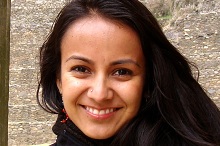
Guatemala is known as the country of eternal spring, unfortunately women’s rights have yet to blossom. Laws against violence toward women have passed and mechanisms to prevent this violence are in place, due to the work of women organizations, but the political willingness for sustainable change and development for women has lagged as evidenced by the recent setback in the laws. As a consequence, significant advancements for women that could result in greater protections from violence are yet to come.
In 2005 as I was finishing my undergraduate studies at Loyola Marymount University, my professor Jodi Finkel told me about a program on National Public Radio about the plight of a group of women sex workers in Guatemala City, Guatemala. One of the women interviewed, Susi, a 41-year-old mother of seven children, stated that her dream was to learn to read. Inspired by her story, I asked my dear friend, Tania, to move to Guatemala to start a literacy program in the City’s red light district, known as La Línea, to enable Susi—as well as all other women in her circumstances—to learn to read. In August of 2005, Tania and I moved to Guatemala.
Learn more about Women
- &lsaquo previous
- …
- 116
- 117
- 118
- 119
- 120
- 121
- 122
- 123
- 124
- …
- next &rsaquo


Twitter